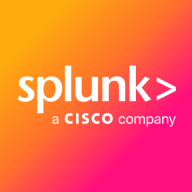

Splunk Enterprise Security and FileAudit compete in the realm of security solutions. Splunk Enterprise Security offers advanced data analysis features, while FileAudit provides an advantage with its straightforward implementation.
Features: Splunk Enterprise Security provides advanced analytics, robust threat intelligence, and broad data ingestion capabilities. FileAudit focuses on file access monitoring by offering real-time alerts, detailed auditing for file-level activities, and specialized compliance assistance.
Ease of Deployment and Customer Service: FileAudit's straightforward deployment model allows quick setup and minimal configuration, which benefits organizations with limited IT resources. Splunk Enterprise Security may require a more complex deployment process and dedicated expertise. Splunk's support team is exceptional in addressing technical challenges.
Pricing and ROI: Splunk Enterprise Security involves a higher initial investment, potentially delivering a higher long-term ROI through enhanced security and insights. FileAudit offers a more budget-friendly option focused on quick returns, appealing to smaller organizations or those with limited financial resources.
| Product | Market Share (%) |
|---|---|
| Splunk Enterprise Security | 7.2% |
| FileAudit | 0.6% |
| Other | 92.2% |

| Company Size | Count |
|---|---|
| Small Business | 112 |
| Midsize Enterprise | 50 |
| Large Enterprise | 266 |
Splunk Enterprise Security delivers powerful log management, rapid searches, and intuitive dashboards, enhancing real-time analytics and security measures. Its advanced machine learning and wide system compatibility streamline threat detection and incident response across diverse IT environments.
Splunk Enterprise Security stands out in security operations with robust features like comprehensive threat intelligence and seamless data integration. Its real-time analytics and customizable queries enable proactive threat analysis and efficient incident response. Integration with multiple third-party feeds allows detailed threat correlation and streamlined data visualization. Users find the intuitive UI and broad compatibility support efficient threat detection while reducing false positives. Despite its strengths, areas such as visualization capabilities and integration processes with cloud environments need enhancement. Users face a high learning curve, and improvements in automation, AI, documentation, and training are desired to maximize its potential.
What Are the Key Features of Splunk Enterprise Security?In specific industries like finance and healthcare, Splunk Enterprise Security is instrumental for log aggregation, SIEM functionalities, and compliance monitoring. Companies leverage its capabilities for proactive threat analysis and response, ensuring comprehensive security monitoring and integration with various tools for heightened operational intelligence.
We monitor all Security Information and Event Management (SIEM) reviews to prevent fraudulent reviews and keep review quality high. We do not post reviews by company employees or direct competitors. We validate each review for authenticity via cross-reference with LinkedIn, and personal follow-up with the reviewer when necessary.